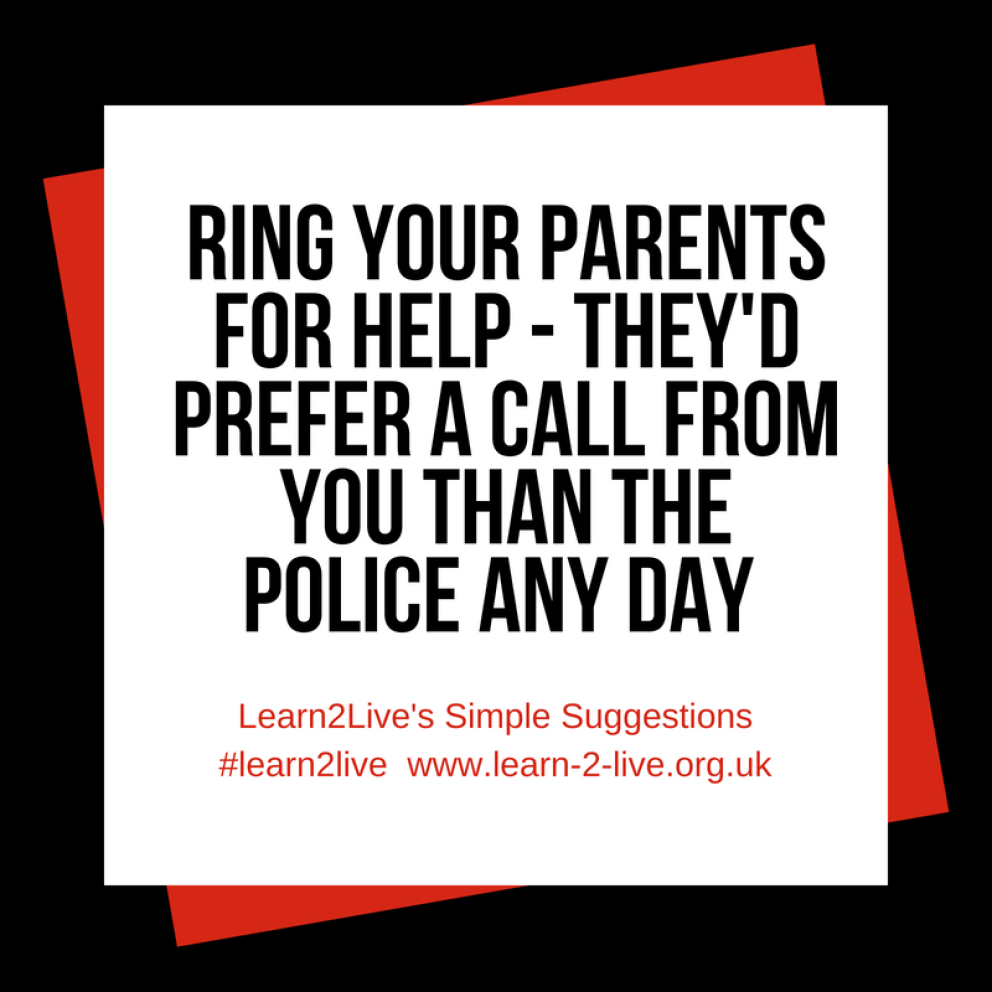PLAN!
- One thing you can do no matter if you are a passenger in a car or a new or learner driver, is to plan ahead. Taking small actions can make big differences in the event of a risky situation. For example putting local taxi firms and uber details into your phone can save you having to figure it out when you need it. Having tech and apps pre downloaded, and being familiar with how you can use them can really help. Most people have What3Words now, but have you used it enough to make it easy to use in an emergency?
Be prepared - know what to say and do!
- Always tell someone that you trust where you are going and when they can expect you back. There are lots of apps out there that you can use to share your location information in real time.
- Carry emergency cash that you can use to get home safely - load £30 into your online bank in a separate account now so it is always there and can be used to pay for travel on a bus, train or taxi instead of you accepting a lift or driving in risky situations.
- Buy your designated driver soft drinks all night and help them to make it easier not to drink alcohol and therefore to get you and them home safely.
- Aim to not get in the car if you think it is risky, but if you find yourself worried while travelling, tell the driver you are going to be sick and you need to get out - no one likes vomit in their car - they will listen!
- Know what you are going to say before you need to say it! Rehearse what you would say if you were worried about someone driving in a way that made you feel unsafe? Watch how these young people deal with someone using their mobile phone when driving.
When you are the driver…
- Don't be in a hurry to pass your test - research suggests ideally getting 100 hours of supervised on-road experience under different conditions over a period of 12 months.
- Take as many hazard perception tests as you can – even after you have passed your theory test! - this will increase your chance of spotting and safely dealing with hazards on the road. Whether you are about to begin learning, or you have recently passed your test, take a look at this free-to-use e-learning platform at the FirstCar Academy. It comprises a series of 14 short videos to keep you and your friends safe on the roads.
- Choose car insurance that provides you with a telematics system (black box). Not only can this make your insurance cheaper but having one fitted to your car can potentially save your life if you are ever involved in a serious collision. A black box also gives you a good excuse for telling your mates to stop asking you to drive faster and will make it far more likely that your vehicle gets recovered if it is ever stolen.
- Make sure your passengers understand that when you are driving they need to follow your safe rules e.g. everyone always wears a seatbelt. Write your rules down and display them in your car if it helps to get the message across. Check out MyCarMyRules for more information.
Work with your parents
Ask your parents for help in keeping you safe - agree a no questions asked plan so that you can ring them for help if you get stuck - they will prefer a call from you rather than the police no matter what time of night it is.
For more info on how parents can support young people in their first years as drivers and as passengers of new drivers see


